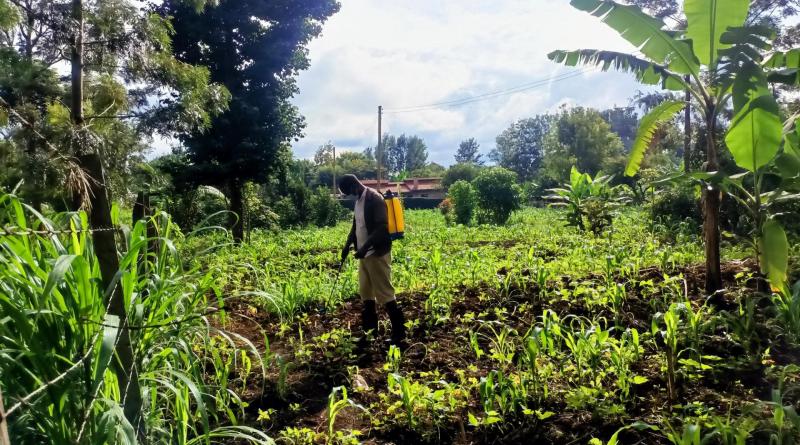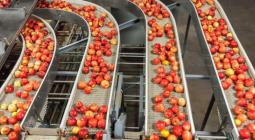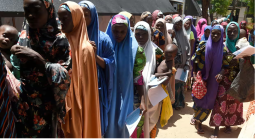Africa’s food crisis needs innovative funding — UN official

Innovative funding models are needed to spur investment and prevent food shortages across Africa that are predicted to grip countries in the coming years, a senior UN official told Semafor.
Alvaro Lario, president of the UN’s International Fund for Agricultural Development (IFAD), spoke in reference to a new UN report that predicts Africans will make up over half of the 582 million people worldwide expected to be chronically undernourished in 2030.
The annual State of Food Security and Nutrition in the World (SOFI) report, published on Wednesday, found Africa had the largest share of people facing hunger in 2023 — 20.4%. Its authors said there was a “clear trend” of rising hunger in Africa, whereas progress had been made in Latin America and the Caribbean and the situation in Asia was relatively unchanged.
Lario, whose agency invests in long-term global food supplies, said the trends in Africa are “extremely worrisome.” He told Semafor Africa more innovation, such as partnerships between financial institutions and the private sector to fund climate adaptation projects, was needed to drive greater investment in agriculture and farming.
“We want to bring more financing — not all the financing can come in the form of grants,” he said. “What we need to make sure is that finance catalyzes further mobilization of resources.”
Know More
The SOFI report — produced jointly by UN agencies including IFAD, the World Food Program and the World Health Organization — highlights the continued impact of supply chain shocks caused by the war in Ukraine and COVID-19 pandemic.
Lario said African countries should diversify their crops, to reduce the reliance on those that are imported, and produce more fertilizers locally. “There needs to be a certain degree of self reliance if you do not want to have this type of short term shocks that are very difficult to overcome,” he said.
Issues around food security are of paramount importance across Africa. So much of the political, economic, and social upheavals we’ve seen in recent years on the continent are tied in some way to this issue.
On the face of it, Kenya’s mass protests were sparked by unpopular tax hikes. But those plans came amid a high cost of living, driven by food inflation. And Kenya isn’t an isolated case, high food inflation in recent years has also driven discontent in other African countries, such as Nigeria and Ghana.
Those prices have been tied to a lack of access to nutritious food, which stems from global supply chain shocks. The solution to this food insecurity lies in addressing a variety of issues that go beyond models to boost private sector investment in agriculture. That is, of course, important, but so too is improving security to dampen the impact of conflict on food production. Farmers in Mali and northern Nigeria, for example, have been forced to leave their land when fleeing Islamist insurgents. Such insurgencies, which have destabilized countries around the Sahel, prevent crops going to markets and, in extreme cases, cut off entire rural areas.
Better transport infrastructure, through road and rail, would help the transportation of food around countries and better implementation of the African Continental Free Trade Area would make it easier for countries to transport food across borders. That would be achievable through administrative changes, such as the implementation of continent wide agencies for food standards to ease the movement of goods and remove the bottlenecks caused by different countries each having their own rules and regulations.
Room for Disagreement
Ndidi Nwuneli, CEO of the One Campaign, a non-profit which advocates for ending extreme poverty, told Semafor Africa the causes of food insecurity across Africa lay primarily in the continent being hit disproportionately hard by the global climate crisis. She said the problems caused by floods and droughts faced by African countries were exacerbated by the pandemic and the debt burden faced by many of the continent’s governments.
Nwuneli said countries became more insular and protectionist in response to supply chain constraints caused by the pandemic and many African countries are “prioritizing debt repayments” over investments in climate adaptation.
She said solutions to the food crisis seen in a number of African countries required a focus on climate change adaptation such as “debt forgiveness linked to climate change and debt swaps linked to climate and food security,” She said there were “lots of creative opportunities” when it comes to debt investment interventions.
Notable
- Blessing Akombi-Inyang, a Nigerian academic based in Australia specializing in global health, argues in The Conversation that Nigeria’s government must ensure adequate nutrition for pregnant women, support small scale farming and create community malnutrition treatment programs. She makes the recommendations in response to UN figures that suggest around 11 million Nigerian children experience “severe” food poverty.






